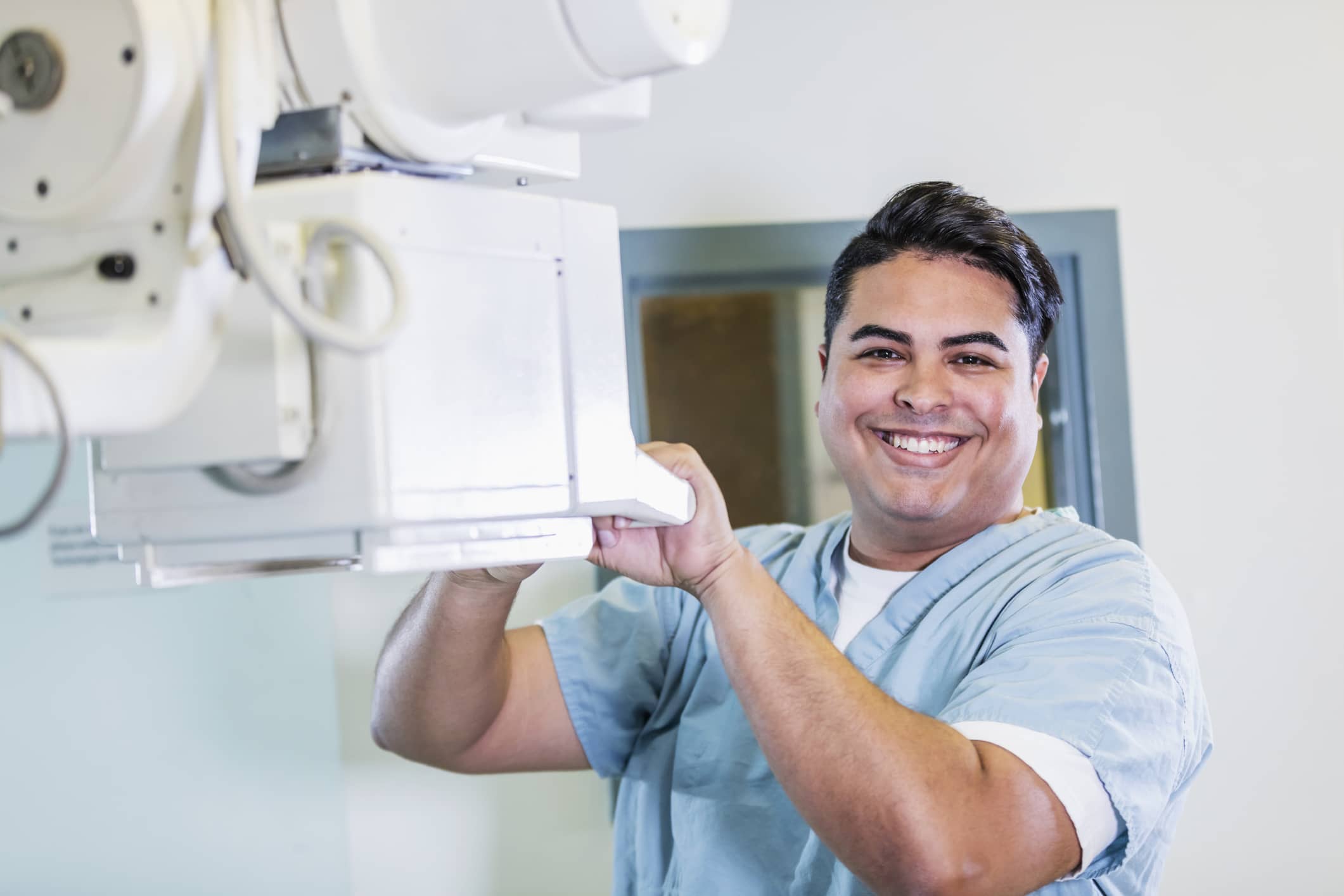
Common Patient Imaging Questions to Answer for Proactive Radiology
Any time patients are dealing with something that's new to them, they're likely to have some concerns and questions. Answering patient concerns is important, whether you're dealing with something like physical therapy concerns or questions about the safety and effectiveness of imaging. As a professional in radiologic science and a direct caregiver, you're uniquely positioned to answer these common questions and offer assurance to nervous patients.
1. What are the risks of this procedure?
One of the first things patients may want to know is about the safety of the procedure you're about to perform. The FDA describes the risks associated with the ionizing radiation in X-rays as either stochastic or deterministic.
Stochastic risks are the ones patients face at a point in the future as a result of exposure to ionizing radiation. These include the risk of developing genetic mutations or cancer years, or possibly even decades, after the test has been performed.
Deterministic risks are more immediate but are the result of higher doses of radiation and repeated exposures. These risks are things like bone marrow suppression, cataracts, burns on the skin, loss of fertility and hair loss.
2. What is a contrast medium in radiology, and is it risky?
Contrast mediums are the materials inserted into the body to make it easier for imaging to detect medical issues inside the body. As the name implies, these mediums create a contrast between the body and bodily fluids to make issues within the body stand out for identification and diagnostic purposes.
Early imaging and CT scans were performed before the risks were fully understood, according to Doctors Imaging. Some of the earliest contrast agents used carried some risks, but advances in technology have led to the use of iodine-based or gadolinium contrast agents that interact with the human body in relatively harmless ways.

Search Allied Jobs in Your Specialty Now
The main risk associated with the use of contrast agents is an allergic reaction. This risk should not be downplayed, because while it is typically a mild reaction and quite rare, it can also be severe enough to lead to the patient's death. It's fair to explain that as an imaging professional, you know the risk factors to watch for to reduce the risk of a patient developing problems from the use of contrast mediums.
3. Is this going to give me cancer?
While it's associated with the broader question about the risks associated with imaging procedures, this question is about a specific fear. There have historically been some claims that imaging procedures can cause cancer, but according to the Mayo Clinic, those claims are largely unsubstantiated.
You can use CT scans as an example to help explain this to patients. While CT procedures use higher doses of radiation than some other radiologic exams, the radiation doses levels are still lower than the doses of radiation that are known to stimulate the risk of cancer by between 10 and 100 percent, which is significant.
If a patient is at an elevated risk of having cancer based on things like a family history of cancer, avoiding an imaging procedure due to the risk of radiation exposure puts the patient at higher risk of death from having undetected cancer than the radiation from an imaging procedure.
As an imaging professional, encouraging patients to ask questions and providing them honest answers can help relieve their fears. It's likely that patients who are nervous are basing fears on outdated information about radiology and outright misinformation. What some patients don't know is that radiation is a naturally occurring phenomenon and is even found in some fruits and vegetables. Presenting the facts in an easy-to-understand format can reassure patients and make them more cooperative for imaging tests.
Explore the open imaging jobs on AMN Healthcare to find your next position. When you're ready, our online application is waiting for you to fill it out so you can begin the next part of your career.
Additional Allied Travel Resources
While you continue your search for the perfect allied healthcare position, AMN Healthcare provides great resources to keep your career moving in the right direction. Begin the application process now, and then learn more about how AMN Healthcare can help you keep your career on the move.
- EAP: Our allied travelers gain access to a valuable set of Employee Assistance Program benefits.
- Allied Travel Jobs by Specialty: Explore allied jobs and learn about hourly salaries and the benefits of working in travel jobs.
- Search All Allied Jobs: Uncover new possibilities in your allied career by exploring both short and long-term options.
- Allied Healthcare Jobs: Learn how we can help move your career in amazing directions, both professionally and geographically by exploring opportunities by each state.
- More Allied Resources: Use the content here to learn everything you need to know about our allied recruitment process, including information on salary and benefits.




